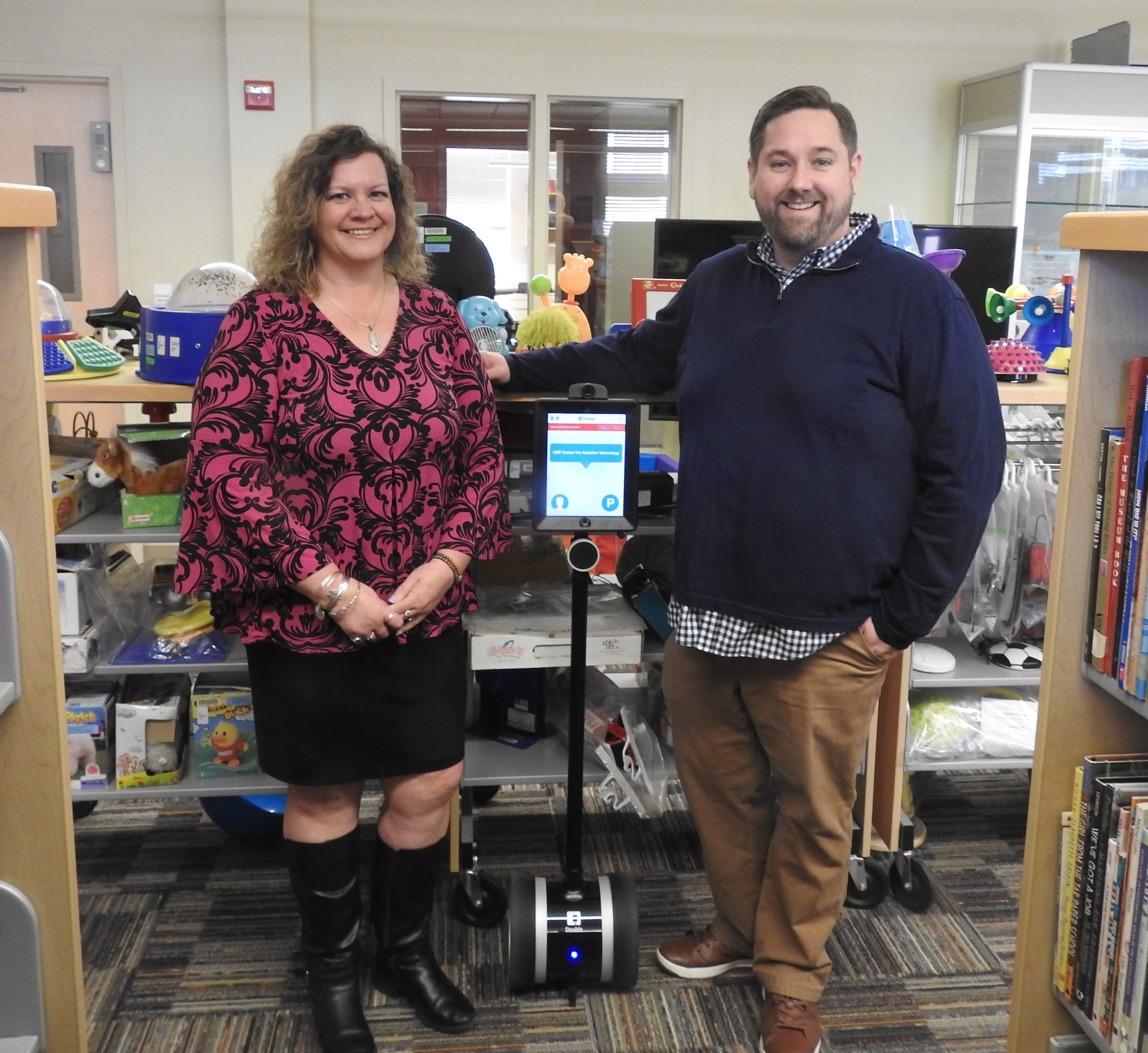
FARMINGTON – Interns at the University of Maine at Farmington have been working with students in Regional School Unit 21 this year, utilizing robots equipped with two-way communication devices in order to interact with their younger counterparts in Kennebunk.
Project Circuit is a new program supported by the Department of Education’s Maine CITE, an initiative aimed at improving access to assistive technologies for Maine students, residents and the elderly. Assistive technology is anything designed to remove barriers for a person with a disability – for students, this means improving their accessibility to programming. The UMF program is working with RSU 21 as that district is the first in the state to employ a certified assistive technology specialist, Hillary Goldthwait-Fowles. UMF interns are in instructor Kevin Good’s Assistive and Instructional Technology course, offered through the college’s Special Education program.
Good said that his course was designed to get future educators comfortable with technology like the telepresence robots. He tells his students that they are designers and makers, not just users of the technology.
“I’m pushing students to think through the process,” Good said. “I watch my students grow and change how they approach [new technology].”
The obvious use of the robot, which includes a two-way communication screen mounted on top of a wheel assembly, is to accommodate students that are unable to physically attend a class or event, Goldthwait-Fowles said. Students that are hospitalized or home-bound by an illness can continue to participate in their classes. However, there are potential uses for other disabilities as well. Students on the autism spectrum, for example, may not be able to attend a crowded event due to sensory overload. Educators may start by showing the student a copy of a class’ whiteboard, then move on to using the robot to allow the student to attend a class.
Beyond student-to-class usage, Good and Goldthwait-Fowles said, the robots also can allow others, such as the UMF interns, to work with K-12 students across the state. The system is on a secured network, Good said, but one that is globally accessible. This allows the UMF interns an earlier opportunity to work directly with K-12 students. At this point, Good likes to say, UMF can be anyplace it can send a robot.
“Anyone can access this and use this,” Goldthwait-Fowles said. While only RSU 21 has a full-time, on-site robot, others can be made available on a temporary basis for specific students.
While the benefits for the UMF interns is obvious, Goldthwait-Fowles said, the program also provided a bigger voice to the disabled community. RSU 21 students could interact with the UMF interns, explaining which assistive technology tools – which can range from communication devices that operate by blowing into a straw to a special grip for a pencil – work for them and how to use them.
“The exchange goes both ways,” Goldthwait-Fowles said, noting that more experience with assistive technology could help de-stigmatize it within the community. “When we open those doors and say ‘here we are,’ that really brings more people into the community.”
Another project in Good’s class has his 15 students using 3-D printers to develop different assistive technology tools, such as knobs to allow doors to be opened or buttons for interactive devices that can be operated by the blind. UMF is also home to the Assistive Technology Center in the Kalikow Education Center – a repository of equipment designed for helping break through barriers for the disabled. This lets students, members of the public or current teachers try out devices prior to purchasing them, Good said, as well as provide a source of short-term replacements when a piece of technology breaks.
Assistive technology specialists, like a number of other Special Education professionals, are in increasing demand across the state. UMF currently has the only undergraduate Special Education program, an area of specialization that has taken on increasing importance as schools see increases in the number of students with special needs. With that in mind, Good’s class will be opened up to all majors next semester.




